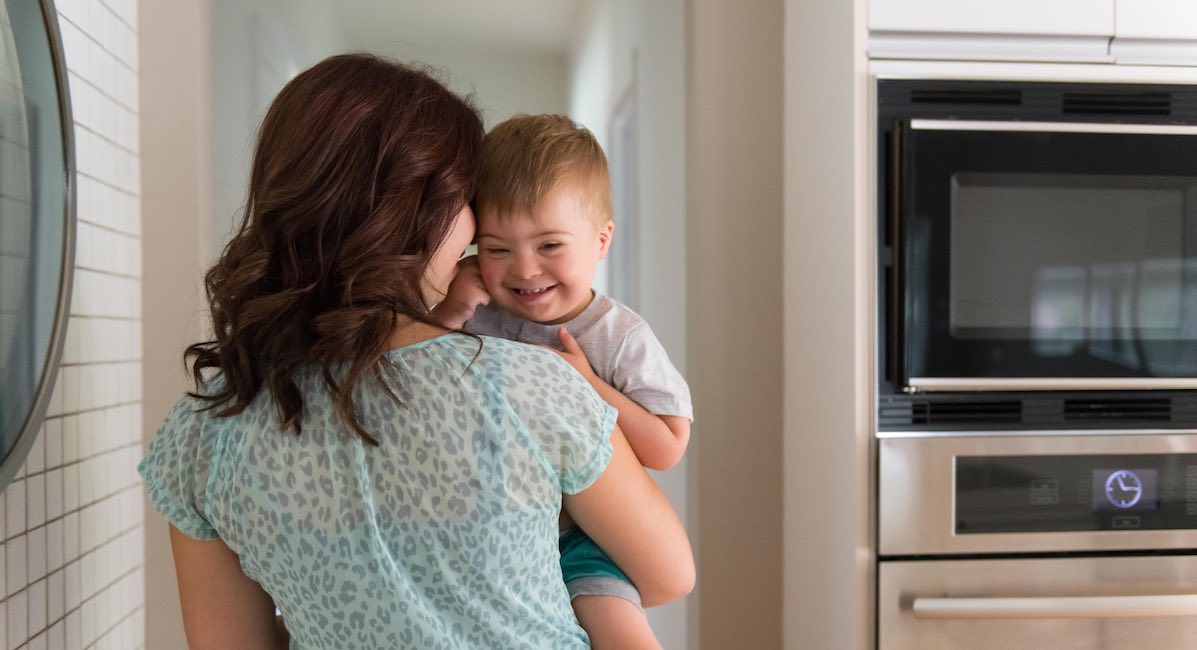Mere months after filing a lawsuit against the National Health Service declaring her son with Down syndrome should never have been born, Edyta Mordel has been awarded £200,000 — or roughly $250,000 — by the High Court of Justice. It is the latest in a disturbing trend of wrongful birth suits across the globe, as parents declare they wish they could have had abortions, simply because their child has a disability.
Mordel, who was originally born in Poland, claimed she was not given the opportunity to undergo prenatal testing, and would have aborted her son, Aleksander, if given the opportunity. Instead, she received a surprise Down syndrome diagnosis at birth, which caused her to become “very upset and angry.” She then decided to sue the NHS for wrongful birth.
“I saw how difficult his life is and I would not have continued my pregnancy,” she said during the court hearing. “I would not have wanted a disabled child and I would not have wanted my child to suffer the way that disabled people suffer. I wouldn’t want to have brought my child into the world like that.”
While the sonographer said Mordel declined additional testing after an ultrasound, Mordel claimed she thought “declined” meant that no issues indicating a disability were found, and the judge said they should have pressed further. “She knew, or ought to have known, that Ms Mordel had indicated provisionally that she wanted Down’s screening,” he said. “She knew, or ought to have known, that this was at the very least likely to be her expectation when she walked into the room. The sonographer should have been expecting a ‘yes’ answer but instead she heard the opposite. Yet this, on my findings, prompted no further inquiry.”
READ: AMAZING: Study showcases the positive capabilities of people with Down syndrome
While prenatal testing is extremely beneficial for those who choose life, and can be a worthy tool to provide preborn children with disabilities of the health care they need, many people unfortunately use it instead as a tool for extermination, to find children they deem to be unworthy of life. The latter, it seems, was Mordel’s goal, and the judge’s statement sets a disturbing precedent, encouraging health care providers to prod pregnant women to undergo prenatal testing, even if they say no.
The judge further ruled that, despite agreeing that a parent should be able to publicly declare that they wish their child with Down syndrome had never been born, he isn’t expressing a negative judgment on the value of children with disabilities.
“Nothing I have said in this judgment should be interpreted as suggesting that the birth of a child with Down’s Syndrome must be seen as unwelcome,” he said. “Some parents have absolute ethical objections to termination of pregnancy, and for them the discussion begins and ends at that point. Other parents accept the possibility of having a baby with Down’s Syndrome without a shred of concern or reluctance. The state expresses no judgments either way, but it is the policy of the NHS that Down’s screening must be offered to all expectant mothers, the premise being that many would wish to exercise their right to proceed to medical termination in the event of a diagnosis.”
In other words, the judge seems to be saying that all pregnant women should be given the chance to undergo prenatal testing — not to better prepare for their child’s birth, but so they have the opportunity to undergo an abortion.
It’s perhaps no surprise, then, that 90% of babies diagnosed prenatally with Down syndrome in the United Kingdom are aborted. Most of these preborn children will be subjected to a dilation and evacuation, or D&E, abortion — a violent procedure in which the baby is torn apart, limb from torso, when they are likely to be able to feel pain.
In addition to that horrifying reality, in the United Kingdom, abortion is banned after 24 weeks of pregnancy. The exception? If the child has any kind of disability, even one as minor and easily corrected as a cleft lip.
Such widespread ableism is pervasive; people with learning disabilities are given DNRs, or do-not-resuscitate orders, without their consent, they receive subpar health care, and have even been euthanized against their parents’ will. As one British lawmaker, Lord Peter Shinkwin, has said, this negative outlook towards people with disabilities has meant that people with disabilities in the United Kingdom are “facing extinction.”
Though people like Mordel claim people with disabilities are suffering and, therefore, are better off dead, this is patently false. Studies have found that virtually all people with Down syndrome report being happy with themselves and their lives, while family members report that their loved ones with Down syndrome had a positive effect on their lives. People with disabilities are also increasingly speaking out for themselves about their right to live, opposing assisted suicide, rejecting the mindset that they are better off dead or that they are burdens or drains on society. People with disabilities lead productive, valuable, fulfilling lives — and they don’t deserve to be targeted for death simply because other people refuse to recognize their inherent right to life.
“Like” Live Action News on Facebook for more pro-life news and commentary!







